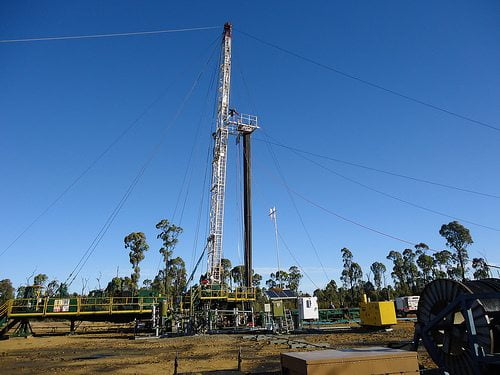

Economy
Make fracking firms pay for emissions, says Cambridge academic
Companies extracting shale gas should pay for the carbon dioxide and methane emissions that derive from the fracking process, according to a parliamentary adviser and lecturer.
In an article for the Conversation, Dr Chris Hope of the University of Cambridge’s Judge Business School wrote that shale gas extraction not only relates to increased risk of water contamination and earth tremors, but it would also “contribute to climate change in two ways, from carbon dioxide (CO2) emissions when the gas is burnt, and from the fugitive emissions of underground methane (CH4) that leak into the atmosphere as the gas is extracted”.
Hope, who is a reader in policy modelling at Cambridge and contributed to the Intergovernmental Panel on Climate Change’s (IPCC) third and fourth assessment reports, argued that fracking firms should pay a tax on every tonne of greenhouse gas they emit.
The social cost of fracking is around $100 a tonne for carbon dioxide and less than $1,500 a tonne for methane, although estimates can vary. Hope believes these would generate £6 billion from taxes by the mid-2020s.
He said that in this way, companies will know from the beginning how much they have to pay for emissions and would understand whether projects are economical.
“Many prospects that initially look promising will turn out not to be worth pursuing once these taxes are factored into the calculation. The better, cheaper prospects where fugitive emissions can be minimised will be favoured”, Hope wrote.
He added that taxes would determine whether shale gas could be a transition fuel, saying, “If we carry on along our present path, the social cost of carbon increases in real terms by a little more than 2% per year, doubling in about 30 years. For methane, the cost rises a little faster, doubling in about 20 years.”
If the world manages to bring emissions down, the cost of carbon dioxide and methane would not increase and shale gas could end up more convenient in the long-term, he concluded.
Further reading:
Davos: David Cameron ‘undermining climate change efforts’ with fracking support
Cuadrilla abandons fracking plans in Balcombe
EU ‘bows to pressure from fossil fuel lobby’ as fracking regulation plans are shelved
Fracking poses ‘serious threat’ of water contamination, says report


 Features10 months ago
Features10 months agoWhat is the Eco-Friendliest Option to Wash Your Dishes?

 Environment12 months ago
Environment12 months agoBuilding a Career in Green Construction: Tips and Insights

 News11 months ago
News11 months ago5 Ways Fleet Maintenance Software Can Help Businesses Be More Eco-Friendly

 Features10 months ago
Features10 months agoAddressing Pressing Ethical Concerns with Crypto Exchanges





























